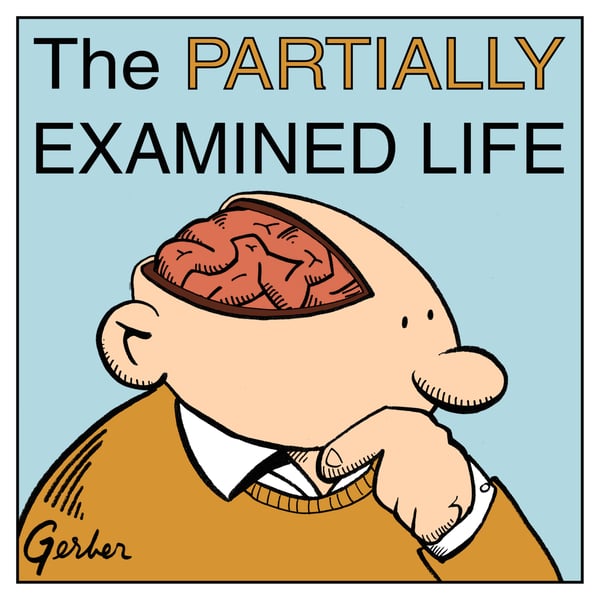Ep. 333: Kierkegaard's "Fear and Trembling" on Faith (Part One)
The Partially Examined Life Philosophy Podcast
Mark Linsenmayer
4.6 • 2.3K Ratings
🗓️ 8 January 2024
⏱️ 47 minutes
🧾️ Download transcript
Summary
To wrap up our coverage of Kierkegaard, we consider his religious stage of development through this 1843 text analyzing the Biblical story of Abraham. Can we understand, much less admire, an attitude whereby you think God has commanded you to kill your son and you gladly go along with it? How does this sort of "greatness" relate to ethics?
Get more at partiallyexaminedlife.com. Visit partiallyexaminedlife.com/support to get ad-free episodes and tons of bonus discussion.
Sponsors: Learn about St. John's College at sjc.edu/PEL. Check out AncientHistoryFanGirl.com.
Sign up for Mark's Core Texts in Philosophy at partiallyexaminedlife.com/class.
Transcript
Click on a timestamp to play from that location
| 0:00.0 | You're listening to the partially examine life a podcast by some guys where at one point |
| 0:11.0 | on doing philosophy for living but then thought better of it. |
| 0:14.2 | Our question for episode 333 is something like, can violations of ethical principles |
| 0:19.8 | be justified by faith or maybe just what's the relation between ethics and religion. |
| 0:24.4 | And we're concluding our lengthy engagement with Sor and Kirkegaard by talking about his book, Fear and Trembling, |
| 0:29.1 | published in 1843 after his book, Either Or that we spoke about in our three previous episodes |
| 0:34.8 | For more information about this book and the podcast please see partially examined life.com |
| 0:38.4 | This is Mark Lintzenmeyer seriously struggling with my faith in this text in Madison Wisconsin This is I'm fear-ispronging with my faith in this text in Madison, Wisconsin. |
| 0:43.0 | This is Isaac, breathing a sigh of relief |
| 0:46.0 | and being a little bit pissed off on Mount Moriah. |
| 0:49.0 | This is Wes Allwyn, draining the deep sadness of life |
| 0:52.0 | and infinite resignation in Cambridge, Massachusetts. |
| 0:55.6 | This is Dylan Casey, not much fear or trembling in Madison, Wisconsin. |
| 1:01.3 | I think we had finished the first two stages, the aesthetic stage and the ethical stage, and we said, hey, let's get back to it. And rather than do a new text, this one chronologically made a lot of sense and supposedly we read about it before but in our old episode that was mostly on the sickness |
| 1:17.0 | Unto Death. We just touched on this and I have a feeling that I probably wrote this book off as being not philosophical enough and when |
| 1:24.8 | starting to read it this time I felt much the same way that we could kind of jump |
| 1:29.6 | past the first whole first half of the book but then on more consideration I felt like yes he |
| 1:36.0 | is a very creative literary exercise is all about the Abraham story that we'll get |
| 1:42.2 | into and he sort of tells it in a bunch of |
| 1:44.7 | different ways and he's trying to really just make us think hard about this and really |
| 1:47.8 | open our hearts to what he's going to have to say so I decided I would try to take it |
| 1:51.8 | that way and got quite a bit more out of it. |
... |
Please login to see the full transcript.
Disclaimer: The podcast and artwork embedded on this page are from Mark Linsenmayer, and are the property of its owner and not affiliated with or endorsed by Tapesearch.
Generated transcripts are the property of Mark Linsenmayer and are distributed freely under the Fair Use doctrine. Transcripts generated by Tapesearch are not guaranteed to be accurate.
Copyright © Tapesearch 2025.

